Miscellaneous
Hardware Security and its Adversaries
An invited talk at TrustED 2015 by M. van Dijk, see [abstract] [slides], discusses into some extent hardware security and its relation to cryptography: Cryptographic reasoning has embraced the idea of “provable security”, however, as soon as crypto protocols and primitives are implemented in SW/HW, security and trust become relative to the attacker who may also attempt to embed Trojans, malicious firmware, and exploit implementation vulnerabilities and side channels. Cryptographic reasoning has the implicit assumption of idealized trust in HW. A closer look at HW security shows a more fine-grained understanding of adversarial capabilities with a more realistic understanding of what is meant by trust in HW; a closer look also reveals HW security’s own implicit security assumptions.
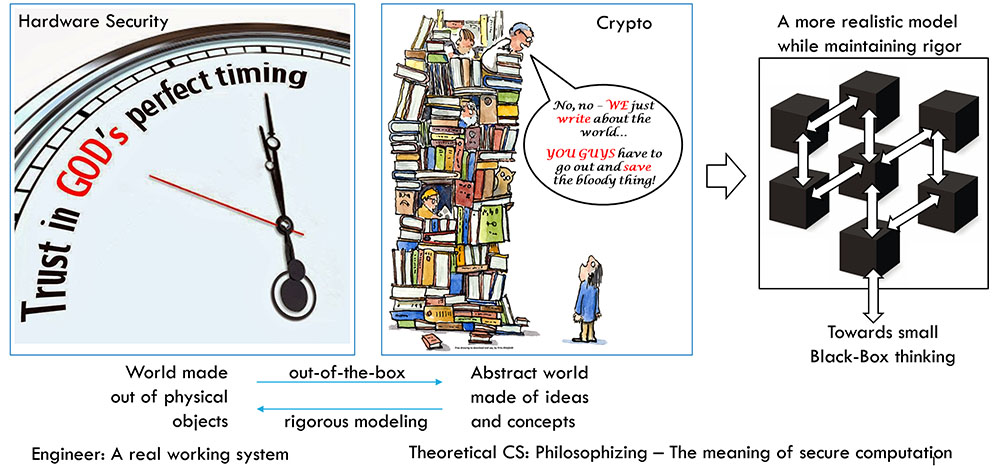
Lease/Release: Architectural Support for Scaling Contended Data Structures
High memory contention is generally agreed to be a worst-case scenario for concurrent data structures. There has been a significant amount of research effort spent investigating designs which minimize contention, and several programming techniques have been proposed to mitigate its effects. However, there are currently few architectural mechanisms to allow scaling contended data structures at high thread counts.
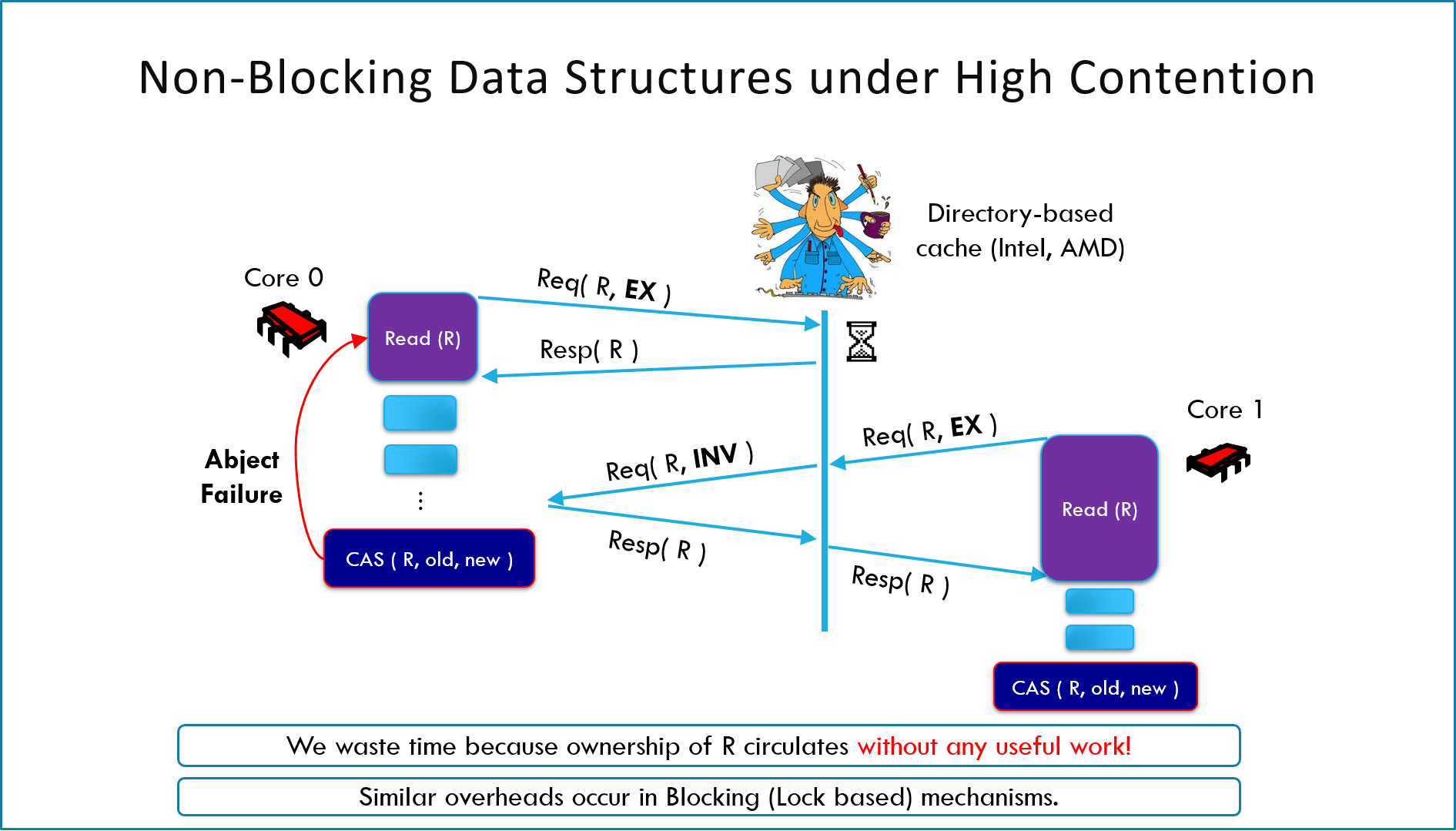
In this project, we investigate hardware support for scalable contended data structures. We propose Lease/Release, a simple addition to standard directory-based MSI cache coherence protocols, allowing participants to lease memory, at the granularity of cache lines, by delaying coherence messages for a short, bounded period of time. Our analysis shows that Lease/Release can significantly reduce the overheads of contention for both non-blocking (lock-free) and lock-based data structure implementations, while ensuring that no deadlocks are introduced.
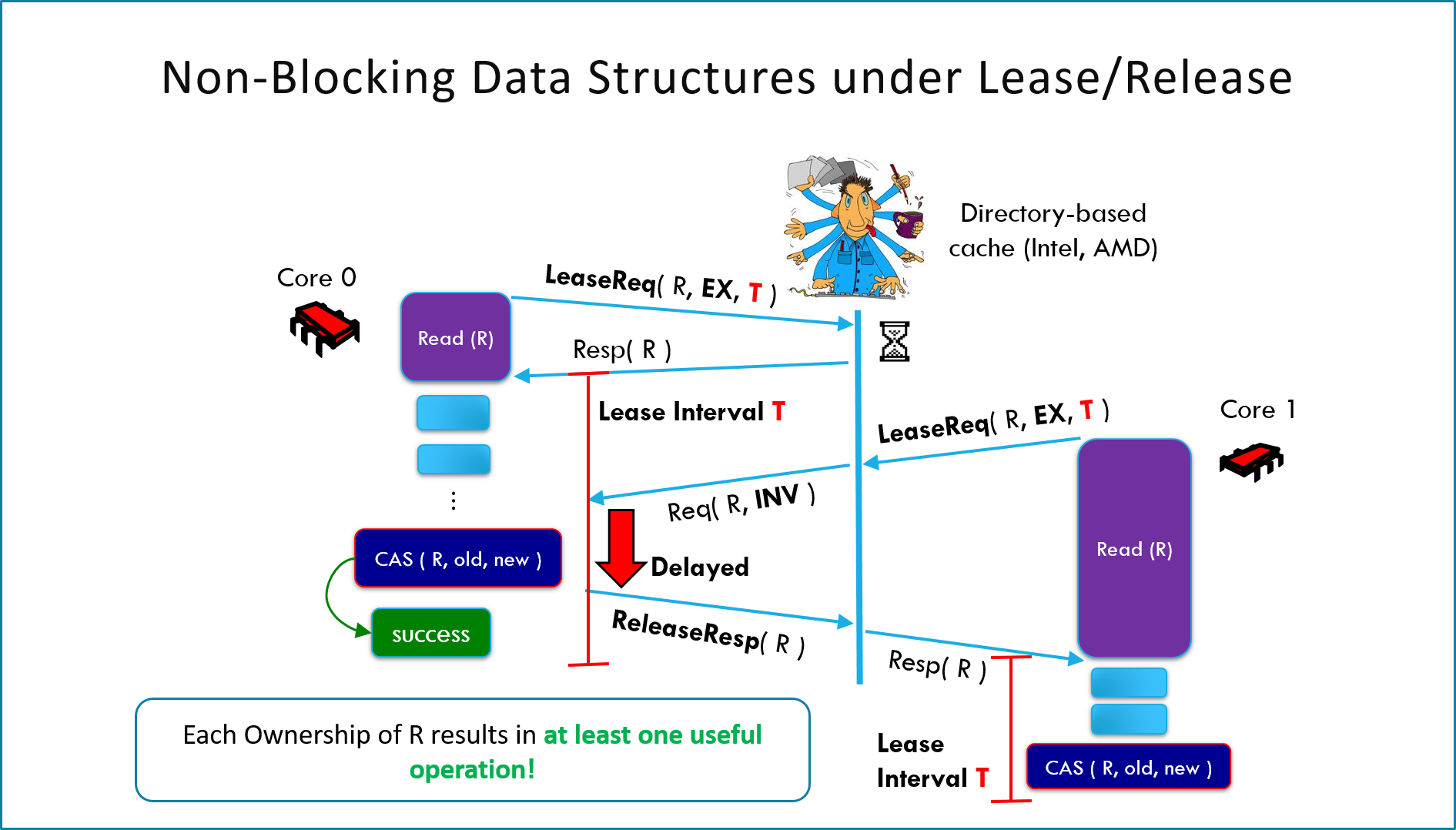
We validate Lease/Release empirically on the Graphite multiprocessor simulator, on a range of data structures, including queue, stack, and priority queue implementations, as well as on transactional applications. Results show that Lease/Release consistently improves both throughput and energy usage, by up to 5x, both for lock-free and lock-based data structure designs.
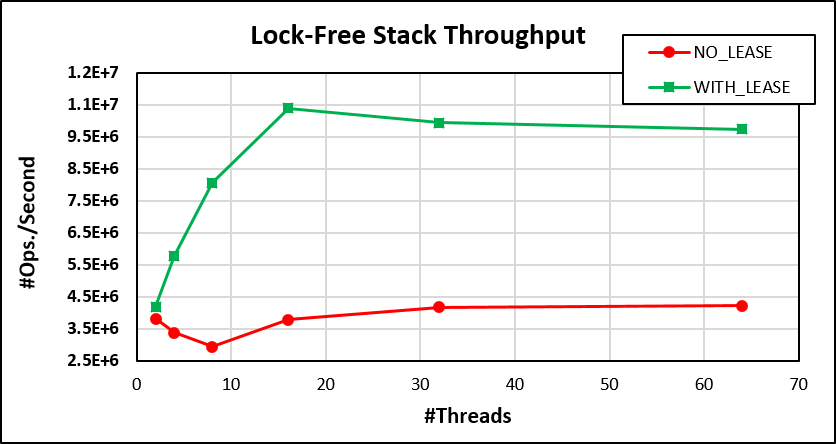
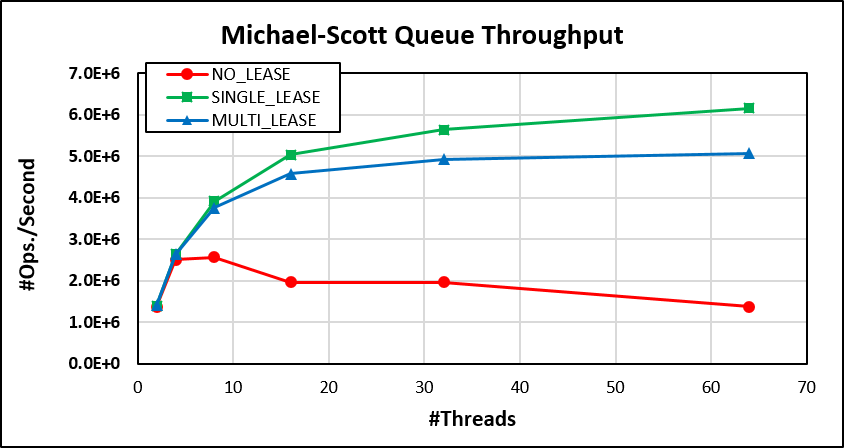
This is a collaborative work with S. K. Haider, W. Hasenplaugh (MIT), and D. Alistarh (Microsoft Research). See the full paper here.
Other active research areas we are working on...
Moving Target Defense, Software Defined Networks, Secure (Medical) Database Storage, Autoencoders – Deep and Extreme Learning. We are currently also setting up research in datacenter infrastructure.

